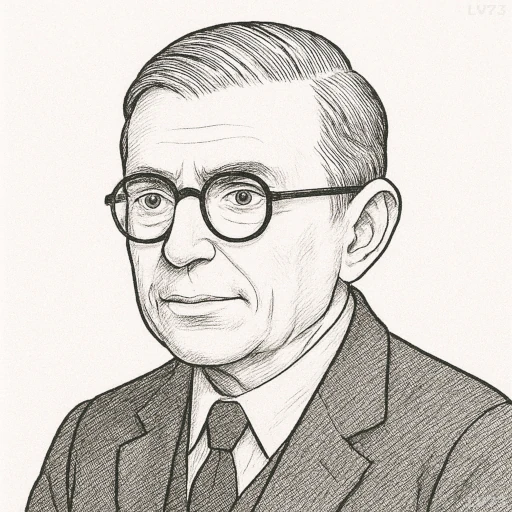“Total war is no longer war waged by all members of one national community against all those of another. It is total… because it may well involve the whole world.”

- June 21, 1905 – April 15, 1980
- Born in France
- Philosopher, novelist, playwright
table of contents
Quote
“Total war is no longer war waged by all members of one national community against all those of another. It is total… because it may well involve the whole world.”
Explanation
In this quote, Sartre reflects on the evolving nature of war in the modern age. Traditional wars, in which one nation battles another, were often limited to specific national boundaries and involved clearly defined sides. However, Sartre argues that total war is different because it has become a global affair, one that can encompass entire populations and affect the entire world. The concept of “total” war, as Sartre uses it, speaks to the globalization of conflict in the modern era, where the consequences of war are not confined to the nations directly involved but have the potential to ripple across the world, impacting everyone.
The term “total” highlights the totalizing impact that modern warfare can have on both society and civilization as a whole. Sartre’s idea foreshadows the way modern conflicts, particularly after the advent of nuclear weapons and global alliances, can draw in multiple countries, involve entire populations, and affect not just soldiers but civilians, economies, and infrastructures. The stakes of such wars extend far beyond national interests, as the global nature of modern technology, economics, and politics means that war is no longer an isolated or regional event—it can truly encompass all of humanity.
In modern times, this quote resonates with the nature of global conflicts and the interconnectedness of the modern world. Even in proxy wars, cyber warfare, and economic sanctions, the idea of a conflict involving “the whole world” is increasingly relevant. Wars no longer involve just soldiers fighting on a battlefield; they often involve economic systems, global politics, and technological warfare that can affect the daily lives of people everywhere. Sartre’s words remind us of the far-reaching consequences of modern conflict and the interconnectedness of all nations in today’s globalized world. It serves as a warning about how total warfare in the modern era can have the potential to devastate not just countries but the world as a whole.
Would you like to share your impressions or related stories about this quote in the comments section?





